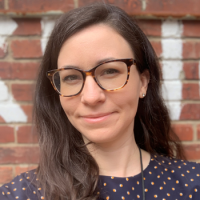Equity, Violence, and the Law: Policing Lessons for Europe and the United States
The deaths of George Floyd, Breonna Taylor, Ahmaud Arbery and other individuals energized the Black Lives Matter movement and sparked calls for police reforms not only in the United States, but in Europe and around the world. With the trial of former police officer Derek Chauvin scheduled to begin on March 29, it is time to assess the impact of such efforts over the past year. While some U.S. states banned chokeholds or explored community-centered policing models, the use of deadly force by police in America is 10 to 20 times higher than in Europe. Still, policy brutality is very real for people of color in Europe.
How do U.S. and European approaches to safety and policing differ? What can we learn from each other? Who needs to be at the table to make sure police are adequately equipped to respond? Join us for a transatlantic discussion on police reforms, how to re-imagine public safety and assure policing equity for all citizens.
Quotes
Artika R. Tyner
Professor at University of St. Thomas, School of Law
“We’d be remiss to start here in 2021 with missing centuries of challenges around policing and in particular what anchors us here today around the experience of African Americans in our quest for racial justice.”
“We’re using the criminal justice system to address all of these societal challenges. We have police in schools—school resource officers addressing school disciplinary issues—we have become a policing nation and an incarceration nation. Five percent of the world’s population, and over twenty percent of the world’s prison population and unfortunately, when we take it back to that centuries-old history, Michelle Alexander reminds us that we have more African Americans under the penal system today than were slaves in America in the 1800s.”
Ojeaku Nwabuzo
Senior Researcher "European Network against Racism"
“It’s not always so easy in Europe to describe this experience statistically. We know that racialized groups will experience individual forms of racism, institutional forms of racism, structural forms of racism. We document that, I document that as part of my work as a senior research officer at the European Network Against Racism. This is what we do, try to uncover people’s experiences of racism and discrimination.”
“At first, we found that they didn’t want to hear that police brutality exists and takes place in Europe, but I think you can see by the huge uprising across Europe that it was in solidarity with black people in the U.S. but also to say that this really does happen in Europe too. We don’t have figures of the number of people who have died at the hands of the police, but after the death of George Floyd we saw many activists across Europe saying ‘this person had an interaction with the police and died’ and you can now see many more terrible examples of people who have died at the hands of the police.”
Kimmo Himberg
Director, Police College of Finland
“Policing in a way reflects the society or at least it reflects the general public administration and its practices and its attitudes. If you ask me to illustrate Finnish policing briefly I would do it by saying that firstly it is very, very strictly regulated through legislation and internal regulations and these are strongly based in international fundamental rights conventions.”
“It’s not about training practical skills, it’s about education. All Finnish police officers are educated to a bachelor level degree in policing and this means it’s a three-year education program so there is plenty of space to study law, to study legislation—learn to apply legislation and regulations in every day policing situations.”
Speakers



Moderator

Hosted By

Global Europe Program
The Global Europe Program is focused on Europe’s capabilities, and how it engages on critical global issues. We investigate European approaches to critical global issues. We examine Europe’s relations with Russia and Eurasia, China and the Indo-Pacific, the Middle East and Africa. Our initiatives include “Ukraine in Europe”—an examination of what it will take to make Ukraine’s European future a reality. But we also examine the role of NATO, the European Union and the OSCE, Europe’s energy security, transatlantic trade disputes, and challenges to democracy. The Global Europe Program’s staff, scholars-in-residence, and Global Fellows participate in seminars, policy study groups, and international conferences to provide analytical recommendations to policy makers and the media. Read more
